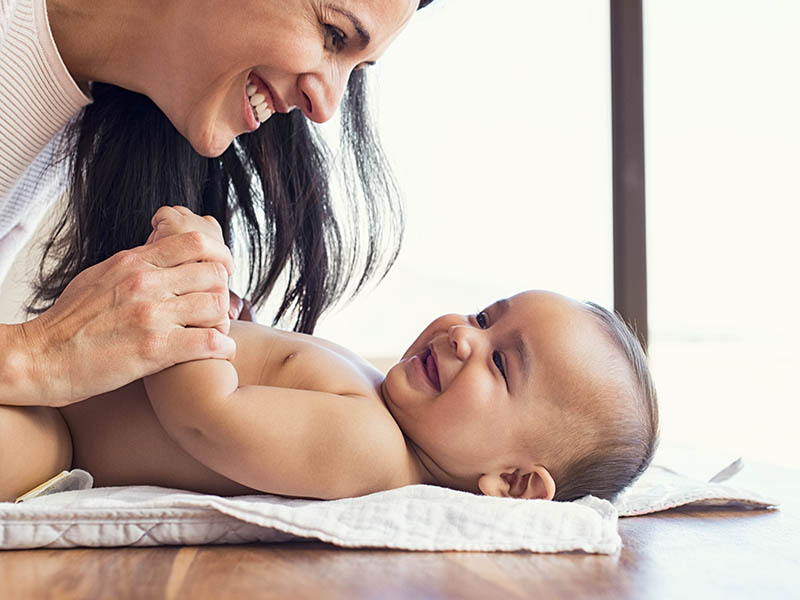Your baby’s brain is developing and growing at an exponential rate. Daily back-and-forth interactions with your baby provide them with experiences that nurture vital brain connections. These connections help create the foundation for learning. It’s never too early to start playing with your baby.
Play time is learning time
Through play, your baby is learning:
- Thinking skills. Your baby’s natural curiosity helps your baby learn thinking skills. You can see your baby’s sense of curiosity as he or she discovers their hands and feet. At this age, babies also begin to explore cause and effect as they begin to realize they caused the rattle to make a noise.
- Social skills. As you play with your baby, you are teaching them how to engage in back-and-forth communication.
- Self-confidence. Watch your baby when they accomplish knocking over a stack of blocks or rolling over for the first time. Your baby’s expression tells you, “I can do it.”
- Language development. With play comes conversation. Your baby needs exposure to a wide variety of words and experiences to make meaning out of their world.
Ideas to try
- Name that toy. When giving your baby a new toy to play with, say something like, “Here is a red ball.” Watch as your baby drops their current toy to pick up the ball. Your baby is developing word association as well as eye-hand coordination.
- Read books. Read to your baby during activities such as tummy time, or simply at cuddle time. Your baby is learning to listen, developing language and gaining information about the world.
- Blow bubbles. Let your baby reach and grab for the bubbles or watch them float in the air. Your baby is gaining eye-hand coordination and self-confidence as they perfect the swing to pop the bubbles.
- Sing. Singing lullabies to your baby isn’t just for bedtime. Sing to your baby during diaper changing time or while riding in the car. Singing introduces new sounds and promotes language development.
- Sensory time. Get creative with introducing baby to a wide variety of things they can touch, smell, taste, see and hear. This is the primary way baby learns: through exploring with their senses.
Screen time for babies? Not so fast
The American Academy of Pediatrics recommends:
- For children younger than 18 months, avoid use of screen media other than video-chatting.
- Parents of children 18 to 24 months of age who want to introduce digital media should choose high-quality programming and watch it with their children to help them understand what they’re seeing.
Learn more
- Read aloud to help your child learn to love books
- Screen time: How much is too much?
- Why your baby needs to play and explore
…
Posted In Children's, Family Medicine, Parenting
